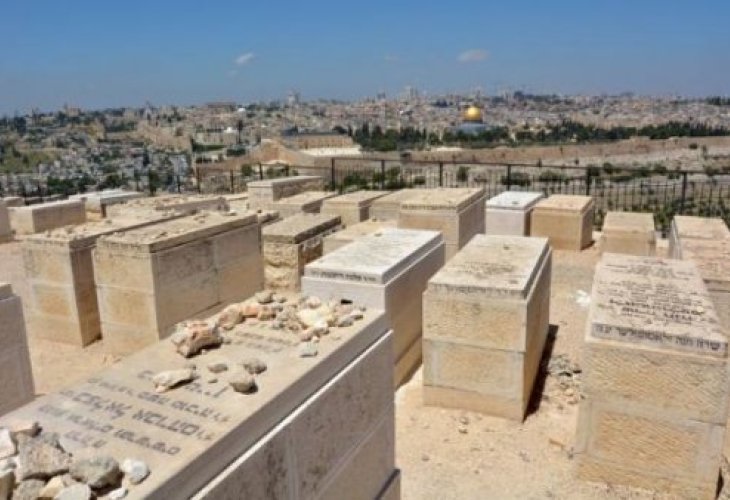Judaism
The Jewish View on Burial: Dignity, Duty, and the Sacred Soil of Israel
Why Burial in the Earth in a Jewish Cemetery is a Mitzvah Steeped in Meaning

In Judaism, Jewish burial is not a mere cultural custom. It is a mitzvah, a sacred obligation deeply rooted in Halacha (Jewish law), Torah sources, and a reverence for human dignity.
A Commandment of Respect and Reverence
The mitzvah of burying the dead in the ground, wrapped in simple shrouds, is a foundational principle of Jewish law and practice. From ancient times, Jews have gone to great lengths to bury their dead in a Jewish cemetery (kever Yisrael) and ensure the body is treated in accordance with halacha. This is the mission of the chevra kadisha, the sacred burial society established in every Jewish community to tend to the deceased with care and reverence.
The Torah teaches: “You shall not leave his body hanging on the tree, but you shall surely bury him on that day” (Deuteronomy 21:23). This verse is the halachic (Jewish legal) source for both a positive commandment and a negative prohibition not to delay burial and to ensure it is done promptly and properly.
Although the biblical context refers to a person executed by a Jewish court and displayed as a deterrent, the rabbis deduced from this case an important principle: if we are commanded to protect the dignity of someone who was put to death, how much more so must we honor the dignity of every person after death.
This imperative is tied to the inherent sanctity of every human being, created in the image of God. Even when punishing non-Jewish enemy kings, as in the case of the King of Ai, whom Joshua hanged and then buried (Joshua 8:29), burial is seen as a necessary act of closure and respect.
From Adam to Today: The Roots of Burial in Jewish Tradition
According to Pirkei DeRabbi Eliezer, the very concept of burial was first introduced by a raven. After Cain killed Abel, Adam and Eve sat weeping, unsure how to handle the body. A raven buried its dead mate before their eyes, and Adam followed its example (Pirkei DeRabbi Eliezer, Ch. 21). This primal moment led to a tradition carried through the generations. For example, Abraham purchased the Cave of Machpelah to bury Sarah (Genesis 23).
Halacha treats the deceased as an object deserving the utmost honor (kavod ha-met). This concept governs the detailed laws of Jewish burial. One key application is the prohibition against delaying burial unnecessarily, a principle strong enough to inspire the sages of Yavneh to institute the blessing "HaTov VeHaMeitiv" in the Grace After Meals after the dead of Beitar were finally buried following the Bar Kochba revolt. The blessing outlines two elements of gratitude: “HaTov," that the bodies did not decay, and “HaMeitiv," that they were ultimately granted burial.
Another halachic expression of koavod hamet is the prohibition against reopening graves, even to relocate bones. Commentators offer two main reasons for this injunction: one, disturbing the remains is degrading, since it exposes them to decomposition; and two, displacing bones disturbs the soul, which fears the coming Day of Judgment (Beit Yosef, citing Kol Bo).
In Jewish tradition, burial in the Land of Israel carries profound weight. Both Jacob and Joseph instructed that their remains be taken to Israel for burial, highlighting the spiritual significance of being laid to rest in the Holy Land. Even those who lived and died in the Diaspora are spiritually uplifted when brought to rest in Israel: “When they reach the Land of Israel, a clump of earth is placed upon them, and it atones for them… as it is said: ‘And His land will atone for His people’” (Bereishit Rabbah 96).
The Talmud further teaches that the righteous buried in Israel will rise first in the resurrection, without needing to roll through underground tunnels to the Land. This belief adds even greater value to burial in Eretz Yisrael, not only as a spiritual merit but as a sign of hope for redemption.
In every generation, Jewish burial reflects not only a halachic obligation but also a deep expression of kavod ha-met, honoring the sanctity of life, even in death. From the earliest biblical figures to contemporary Jewish communities around the world, the commitment to proper burial, and especially burial in the Land of Israel, remains a profound testament to faith, continuity, and the enduring connection between body, soul, and sacred soil.

